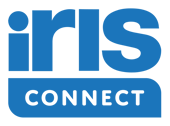Enabling the deconstruction of practice
For teachers to genuinely see and feel the benefit of lesson observation, schools and senior leadership teams need to shift the focus and culture of lesson observations away from teacher evaluation or performance management to a peer engagement tool used by teachers and for teachers.
The million dollar question is HOW?
Traditional lesson observations are irregular events not a main stay within professional development but rather a requirement so to grade performance. More importantly the feedback process of a lesson observation is a ‘tell’ not a learning discussion. There is limited involvement on both parts of the observed and observer, nothing more than a collection of notes to discuss practice.
Only by de-constructing practice and feedback can both the observed and observers truly understand what elements constitute excellent practice. The simple act of observing is impactful, however, only by discussing and breaking down what we saw can we translate that into how it may impact our own practice or what that may look like in different circumstances.
Peer observation in its traditional model of sitting in a colleague’s classroom is becoming increasingly common, and, a great approach to picking up new skills, ideas, knowledge and questioning your own practice. If not a little expensive in terms of time and cover teaching. But… if as a teacher you have never been involved in the process of de-constructing feedback and practice, how, will you ever understand what excellent teaching and learning looks like. During a peer observation it’s impossible to question, discuss or spot the impact of an activity on pupils. You may well be watching an excellent teacher modelling brilliance around differentiation, but what makes it brilliant? What skill or instruction piece do you need to look out for?
Video removes these obstacles significantly providing a resource to stop, pause and playback at any time providing an objective platform for effective professional learning conversations. It is then possible to understand different elements within teaching practice, why it worked in a particular instance or why it didn't, being able to spot the processes that deliver excellence can you then begin to apply knowledge to your own practice, generalise and transfer different principles across many circumstances.
This is also true of our own practice; by learning to de-construct personal practice can we then begin to look at others for opportunities to learn.



Leave a comment:
Get blog notifications
Keep up to date with our latest professional learning blogs.